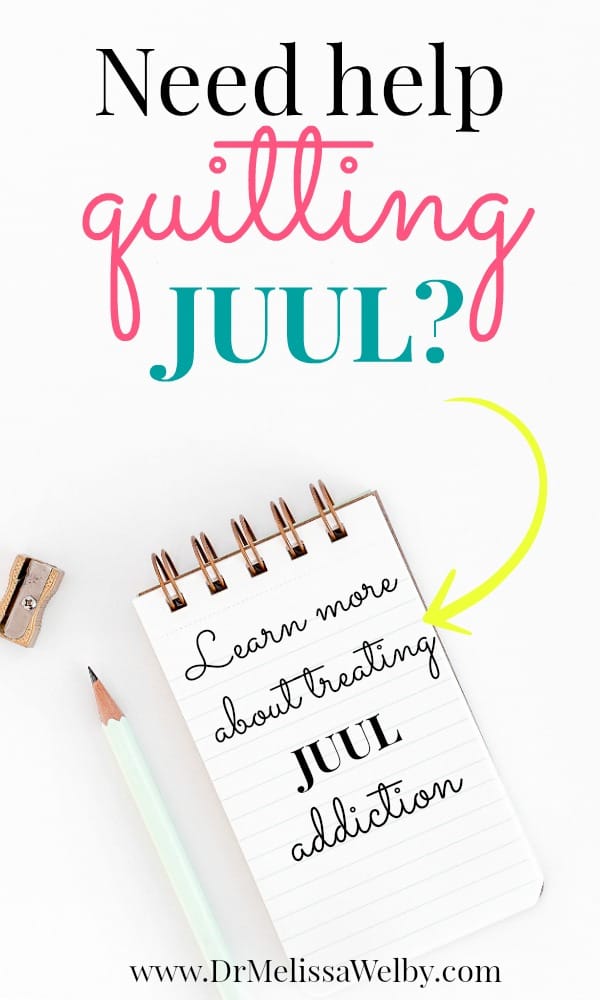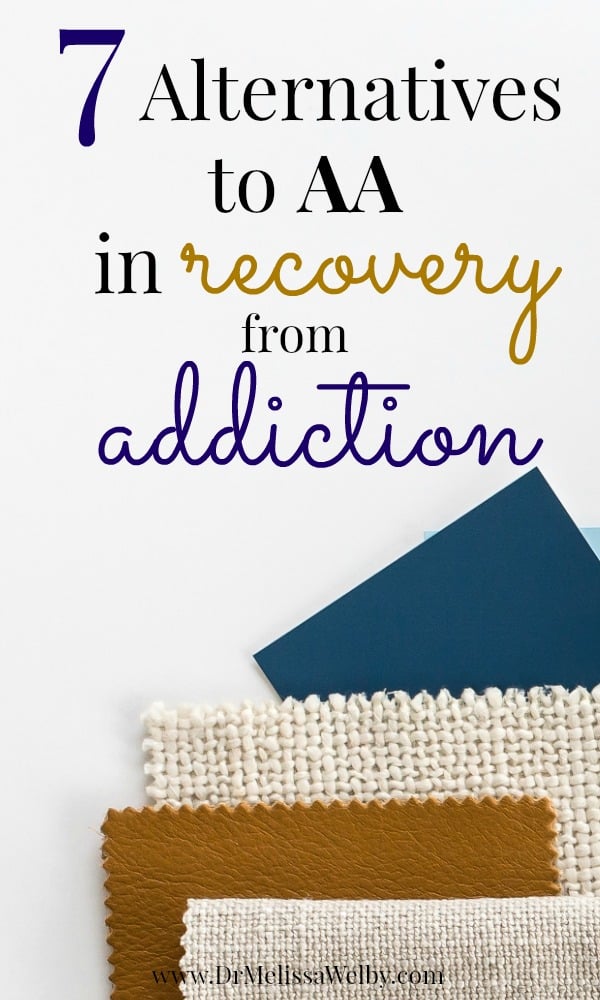How will antidepressants make me feel? How do I know if it is working? Before starting antidepressant medications it’s important to know what to expect; both with potential side effects but also what to look for when assessing if there is a benefit. Antidepressant medication is slow to take effect so the benefits can creep up on the person. You will not suddenly be a different person from the effects of antidepressants (and if you are then you are likely having a side effect your physician needs to know about). Antidepressants are not “happy pills”…but will hopefully treat depression so that you can get back to your normal self.
Tag: Treatment
26 Symptoms of Adult ADHD: Can You Relate?

Although each person is unique, there are many common signs of adult Attention Deficit Hyperactivity Disorder (ADHD). The symptoms of adult ADHD listed below aren’t only experienced by those with the diagnosis. The difference between having ADHD or not relates to the extent of the struggles and the ways it interferes with functioning. ADHD can cause significant challenges in relationships, employment, and self-esteem for people who are not adequately treated. ADHD symptoms in adults don’t cause occasional trouble concentrating or careless mistakes…that’s normal life. Attention and focus exist on a spectrum and anyone can experience problems to some degree. Read these 26 signs of adult ADHD to learn more and see if you can relate.
Pulling weeds and psychotherapy: What do self-exploration, self-discovery, and gardening have in common?
As winter dredges on I find myself beginning to think about spring and the joys of planting a garden. Spring is one of my favorite times of the year, where life grows out of everything that appears dead. Buds pop from the clusters of sticks that are my hydrangea plants, and sprouts come out from the soil where bulbs have been waiting to give life. It’s a time full of hope, renewal, and opportunities for positive growth. Reflecting on the wonders of spring got me thinking about how psychotherapy works and the growth opportunities that emerge from both. The fresh start of spring parallels the opportunities for positive growth and self-exploration we have in our own lives: rejuvenation, inspiration, self-discovery, and beauty. The roots of psychotherapy are wrapped up in the basics of gardening.
(adsbygoogle = window.adsbygoogle || []).push({});
How psychotherapy works: What’s under the surface?
Looking out into my back yard, my raised beds are lying in wait for spring; piles of dirt with the remains of a few dead plants and weeds that won’t give up. Under the surface, the beds are full of roots: some big or small, deep or superficial. They form the intricate network of the past and the future; the remains of a previous life and the foundation for what is to come.
Our life experiences lay down roots inside us: networks of patterns, habits, and automatic reactions. Sometimes the roots are more like weeds forming the basis of worry thoughts, PTSD, or ineffective coping skills. But other roots are what we can fall back on: the building blocks that make us who we are, our resiliency, drive, and passions.
Self-exploration and the roots of life: Some wanted, some not
Unwanted roots grow pesky weeds. Remove them as I may, they come back as soon as I stop being vigilant. The only way to eliminate these weeds is to work harder to dig down and get them at the root. Though it is impossible to create a permanently weed-free space, once the root is eliminated, the network can be minimized and dealing with them as they arise will prevent a major problem.
Think, for example, what happens when the roots of addiction are present. Ongoing attention to self-care and recovery are required or addiction can pop up to the surface and produce its ugly fruit again. Without digging down and eliminating as many of the roots as possible, addiction will grow under the surface and pop through once it is strong enough.
Growth opportunities: Self-care isn’t a one time job
There are outside influences that invade my weed-free garden space. Seeds and grass clippings blow into the garden and the process of weeds choking out the good starts over. Weeds are hearty and some will find a way to survive.
(adsbygoogle = window.adsbygoogle || []).push({});
If we can’t eliminate the negative roots, we can have a maintenance plan to keep them in check.
As much as we take care of ourselves, there will always be bumps and bruises that come with life. If we can accept this, it makes the process of recovery easier. Instead of putting our energy into thinking about the unfairness of it all we could more quickly and effectively address the fact that “weeds happen” and move forward. This is a growth opportunity for us. Life evolves so we need regular maintenance to nourish the parts that are positive and quickly deal with what holds us back.
Self-discovery: The beauty of roots
The roots under the surface don’t only bring unwanted chores and negativity, they are also the lifelines to the plants that bring beauty and fulfillment. These roots give life to perennial strawberries and flowers, and they also form the basis of who we are. They drive our interests, passions, depth of experiences, resiliency, humor, and the ability to explore and trust.
If we steadily maintain and minimize the weeds in our lives we allow what fulfills us to spend more time in the sun not being crowded out or shaded by negatives.
Opportunities for positive growth: Building blocks of life
Side Effects of ADHD Medication in Adults: Watch For the Crash!
The goal of ADHD treatment with stimulant medications is to find a medication that is both effective and has no (or minimal) side effects. Sometimes it takes a couple of different medication trials before finding the best treatment. Most ADHD medication side effects in adults are minor but one side effect, “crashing”, can be so disruptive the person will have to switch medications or stop altogether.
Wondering if you or a loved one have ADHD? Take this free ADHD symptom test to help you recognize the signs and symptoms of Adult ADHD:
Need help quitting Juul? Learn more about treating Juul addiction.
The quit-smoking techniques available for traditional cigarettes also work for people treating Juul addiction. A Juul e-cig is unique, but not so special that it needs separate therapies to treat Juul addiction. Nicotine addiction is the same, regardless of the delivery mechanism. Quitting Juul is hard but not impossible.
(adsbygoogle = window.adsbygoogle || []).push({});
Read the first post in this series to learn all about Juul e-cig and what makes it different from other e-cigarettes.
First, make a quit plan
Come up with a plan that makes sense for you and pick a date to quit your Juul e-cig. It is more effective to choose a specific date rather than a general goal of quitting in the future. Once you pick a date let other people know your plans. This will help you stay accountable.
Part of the preparation involves getting rid of your Juul device and pods. You don’t want it to be effortless to restart Juul in a moment of significant craving.
The CDC has great resources on quitting nicotine. Here is a link to their page on building a quit plan.
Nicotine addiction and withdrawal:
The physical withdrawal from nicotine lasts for approximately 1 week but breaking the psychological addiction can take longer.
Nicotine withdrawal symptoms include:
7 Alternatives to AA in Recovery from Addiction
Alcoholics Anonymous (AA) has helped countless people in their recovery from addiction but one size does not fit all with healing. The messages of AA don’t resonate with everyone and it’s important to know alternatives to AA exist. Healing and recovery are lost on some that become distracted by what they interpret as religious aspects of AA. This post is about the other options for a self-help addiction recovery program.
The more alternatives to choose from, the greater the chance that people will find a program they identify with. Recovery will still be hard but may be easier to start when it’s the right fit.
(adsbygoogle = window.adsbygoogle || []).push({});
Keep in mind, AA is the most prolific addiction recovery program with multiple meetings every day all around the world. It is by far the easiest to attend if you are looking for daily, free, in-person support. However, it is not the only game in town.
This post does not cover medication-assisted recovery. This is an important option for many people on their path to recovery and will get covered in a separate post.
SMART Recovery:
SMART Recovery (stands for Self-Managment And Recovery Training) describes itself as a “science-based secular alternative” and is not specific to alcohol, but for any type of addiction (including gambling and other non-substance related dependencies). It has face-to-face and daily online meetings in addition to a 24/7 chat room and online message board.
SMART recovery views addiction as a bad habit and not a disease.
The purpose of SMART Recovery according to their website:
To support individuals who have chosen to abstain, or are considering abstinence from any type of addictive behaviors (substances or activities), by teaching how to change self-defeating thinking, emotions, and actions; and to work towards long-term satisfactions and quality of life.
SMART Recovery works as a 4-point recovery program based on cognitive-behavioral techniques that teach how to change self-defeating thinking, emotions, and actions. The 4-point program covers building and maintaining motivation, coping with urges, managing thoughts, feelings, and behaviors, and living a balanced life.
The SMART Recovery Toolbox provides a variety of methods, worksheets, and exercises to help support you through addiction recovery. Find them
here
What is Telepsychiatry? How a Virtual Doctor Visit Can Help You
Telepsychiatry visits are just like any other medical appointments- the only difference is they are conducted from the comfort of your own home or office using live video-conferencing. There are different names used for the same thing: virtual doctor visit, telehealth, telemedicine, telepsychiatry. They all mean the same thing: delivering health care services at a distance.
(adsbygoogle = window.adsbygoogle || []).push({});
What is telepsychiatry?
Telepsychiatry visits are carried out using a HIPAA-compliant connection to keep your protected health information safe. The technology is similar to using Skype or Facetime, however, the telepsychiatry technology is encrypted. The technology has to meet certain medical standards to use.
What is HIPAA? Read here for a summary of the privacy laws. This link can also be used if you are having trouble falling asleep….
Want to prepare for your first visit with a psychiatrist?
Read my 16 questions to answer before your appointment so you are ready.
3 Benefits of a virtual doctor visit:
1. Telepsychiatry eliminates geographic barriers.
Many communities are underserved by psychiatrists and wait times can be prohibitive. Previously unavailable services can now be accessible throughout the country. Telepsychiatry allows us to easily connect with one another irrespective of location.
There is an important caveat though. Even though we have the capabilities to see anyone in the world using this technology, doctors can only treat people in the states they are licensed!
For example, I am licensed only in Connecticut. If you are in any other state I cannot treat you. There are provisions allowed for short-term treatments (ie if you are my patient and leave for vacation out-of-state I am able to continue my treatment of you during your vacation.)
(adsbygoogle = window.adsbygoogle || []).push({});
The psychiatrist doesn’t have to reside in the state where they are licensed. A psychiatrist can be licensed in multiple states and treat people all over the country. It is a time consuming and expensive process to get and maintain different licenses hence why many doctors just stick to one.
2. A virtual visit saves time!
Telepsychiatry visits can be a welcome solution for challenges that make it hard to come to appointments. This includes time pressures at work, transportation issues, or childcare difficulties.
Reduce the need to travel to appointments and take time off work by scheduling a virtual appointment. No more sitting in traffic or wasting time in a waiting room. Reduce the stress that surrounds the logistics of scheduling and getting to an appointment.
3. Virtual doctor visits improve access to specialists.
There are not enough psychiatrists and certain areas have severe shortages. This especially rings true for subspecialists such as Geriatric, Child and Adolescent, and Addiction Psychiatrists.
(adsbygoogle = window.adsbygoogle || []).push({});
There is a national opiate crisis yet there are many areas of the country where there are no licensed psychiatrists to treat patients needing help with opiate dependence. In order to prescribe buprenorphine (Suboxone), psychiatrists need extra training in order to get the special DEA license. Without that license, a doctor is unable to prescribe “medication-assisted treatment”. Telepsychiatry can expand access to licensed psychiatrists in areas of shortages.
Ask your doctor if they do virtual visits
Not all doctors see patients via telemedicine but many are starting to. I use telepsychiatry in my practice and I love it. Sometimes my patients come to see me in the office and sometimes we schedule a follow-up virtual visit. If a patient is running late (or missing the appointment) we can quickly change to telepsychiatry. This allows care to continue without the need for rescheduling.
(adsbygoogle = window.adsbygoogle || []).push({});
Have you had a virtual doctor visit? What was it like for you? I find that even patients that are hesitant, realize that it is actually quite comfortable and will request telepsychiatry follow-up once they try it.
How well do you know your medical history?
Do you know what the plan is to manage your medical diagnosis? What is your medication is for? What can you do to take charge of your health?
You need to be your #1 advocate and that requires you to have a good knowledge of your medical history. Download a form with the questions you need to know by entering your email here:
What is Self-Respect?
WHAT IS SELF-RESPECT? In my profession, I see lots of people who feel broken. Some have been struggling for years with depression, anxiety, bipolar, etc…. but others are broken because they are afraid to be themselves. I wish I had a magic wand or even a magic pill, anything to make it easier for people to push back the blinds, stop hiding, and live true to themselves. I see self-respect as just that. Not hiding. Imagine the freedom that can come with self-respect. Let me define self-respect better for you.
(adsbygoogle = window.adsbygoogle || []).push({});
Aretha Franklin: R-E-S-P-E-C-T
Although this post is written for all of you out there to encourage you to stop and reassess; it is dedicated to Aretha Franklin who just recently died. Her song, Respect, became a battle cry for African Americans and the woman’s rights movement, for everyone who felt marginalized and wanted to be respected. This song reminded people that respect was OK to ask for and helped several generations feel brave.
What is self-respect?
Let me define self-respect by using some similar words that come to mind: acceptance, love, openness, confidence, resiliency, truth, wellness, values, dignity, bravery, choice.
The dictionary defines self-respect as:
1 : a proper respect for oneself as a human being. 2 : regard for one’s own standing or position.
What words would you add?
Self-respect is not entitlement, self-serving, selfishness, or narcissism.
How do you define self-respect?
Is it the same as self-confidence? Self-esteem? I don’t think so. I think the terms are related like siblings but they aren’t identical twins.
Respect means valuing your own needs. Valuing yourself. Valuing your inner being and everything that you encompass. This doesn’t mean that you value yourself to the exclusion of others, but at least equal to others.
(adsbygoogle = window.adsbygoogle || []).push({});
Self-respect doesn’t even mean loving everything about yourself. We all have things we wish we could change and ways we wish we were different. Self-respect means that we continue to try to do better, love ourselves despite the things we wish were different, and live true to ourselves.
How to live true
Self-respect requires being in touch with one’s feelings constantly where I don’t always think self-confidence requires the same. In order for self-respect to remain intact, one needs to recognize how a situation makes you feel and respond accordingly. I think there is a certain level of self-confidence running in the background of people using self-respect, but I also think that self- respect requires acting even when not self-confident.
Self-respect needs to be considered the bottom line that doesn’t get crossed over.
How can a person reflect on how they feel in a situation?
(adsbygoogle = window.adsbygoogle || []).push({});
Ask yourself:
Why You Need to Ask Your Doctor Questions!
Let me clear up a couple of myths regarding asking your doctor questions. Some people are too afraid and feel intimidated to ask a doctor a question. The truth is that we want you to ask questions! At least I do…But seriously, I think most doctors do too. Let’s talk about why you need to ask your doctor questions. The next blog will give you 4 tips to be more effective at getting your questions answered during the doctors appointment. You need to ask doctors questions so you can understand and take charge of your health!
Make sure to complete my important health challenge at the end of this post. Test your knowledge about your health and make sure you are informed!
You will also be able to download a health history form that has the key questions you need to know about medical diagnoses and medications.
(adsbygoogle = window.adsbygoogle || []).push({});
Why ask doctors questions?
We are a team!
We are a team working together and you are a valuable and essential member of that team. You must understand your health to actively participate in the team! I need you to make informed decisions that are right FOR YOU!
If you ask your doctor questions, you have more of a chance to understand everything you can about your health and wellness. The more you comprehend, the more likely you are to follow through with treatment.
If you understand fully why I am giving you a particular medication and what I am trying to treat, there is a better chance you will take that medication and hopefully get better.
Ask a doctor a question: You want me to do WHAT?
If you don’t understand why I am making certain recommendations, and you don’t ask for clarification, how likely are you to follow all the directions?
(adsbygoogle = window.adsbygoogle || []).push({});
Let me give you an example:
If I go to physical therapy and they tell me to do XYZ exercises 3 times each day but they don’t explain to me WHY I need to do these exercises and HOW they will help me (or they explain it but I don’t understand them) than I am not likely to be as dedicated to doing my rehab.
The truth is: I don’t want to do these exercises. They are boring and I don’t have the time. If I can’t visualize how they will help me then I might slack off after a few days (let’s be honest… it’s not might… I will definitely slack off).
“The doctor said to take them, so I take them.”
Sometimes people take medications because of blind trust in their doctor. They don’t understand why the medications are being given to them but they take them.
But often, people don’t want to:
- Take medication!
- Or do mantras (see my post on mantras to treat depression to learn how they can help).
- Or exercise when they are depressed (see this post for tips on how to get this done and WHY it’s important. Exercise works!!).
- Or any number of the self-care things I recommend…
And if they don’t understand why they are doing it then how often will it get done?
(adsbygoogle = window.adsbygoogle || []).push({});
Be informed. Ask your doctor questions!
How can you help yourself if you don’t know what’s going on?
In the ER, or at an initial appointment, I ask about medications. MANY people have no idea why their medications are being prescribed and how the medication is supposed to help.
How can you take charge of your health if you don’t ask your doctor questions and make sure you understand? Usually, there are things we can modify in our environment (diet, exercise, sleep, self-care, etc..) that will assist in our recovery. It’s important to make yourself informed so you can take charge of your self-care!
Who is your #1 advocate?
YOU need to be the #1 advocate for your own health and you need all the information to make informed decisions!
Is it disrespectful to ask your doctor questions?
Sometimes people feel intimidated to ask their doctor questions. They worry asking questions may seem disrespectful or that you are questioning the doctor’s judgment. No, you just want to understand what is going on!
I love when patients ask questions because that means that they want to be involved in their treatment! They care and desire to feel better. I want to partner with you in your care- not be a dictator telling you what you have to do.
(adsbygoogle = window.adsbygoogle || []).push({});
I want you to:
- understand as much as possible about your health,
- why something may be happening,
- what it means,
- and what our plan is to make it better.
My appointment is too rushed to ask my doctor questions!
It can be intimidating when you want to ask questions but you know your doctor is rushed. Even though I am a physician myself, I feel pressure to be quick and not hold up the doctor with my questions. I know how stressful it is to run late and I don’t want to contribute to messing up their schedule.
Side point: 2 Reasons for the rush
- Doctors are often pressured to see too many patients in a day (this is another topic in itself. There are SO many reasons why doctor’s schedules get squeezed and overscheduled. It isn’t pleasant for the doctor or the patients!)
- Insurance companies will only pay for short visits. The time allotted is often inadequate to address a patient’s needs (Ok, this is another topic too. You may not want to get me started on this one!).
In the next post, I will discuss 4 tips on how to get your questions answered in the doctors appointment. These tips will help you deal better with an appointment that is rushed and increase the chance for you to get the information about your health that you need.
CHALLENGE TIME!
Here is my challenge to you:
- If you are on medication, go through each medicine and write down what it is for. What is it helping you with?
- If you have a medical diagnosis: Write down what it is, how it affects you, and what the plan is to treat it (or manage it).
After you complete this exercise you should have a good sense of how well you understand your health. If you identify areas that you are unclear about bring these questions to your next doctors appointment!
Let me know how well you did on the challenge! Did any of your answers (or lack of answers) surprise you? Did you identify questions you need to ask your doctor?
Part of being healthy is understanding your personal medical history.
Enter your email here to download a form that will keep track of all the important details you need to know (and questions you need to ask) regarding your medical history and medications.
Read 4 tips to help you get your medical questions answered before your next appointment to be better prepared!
Do you have a mental health question you have always wanted to ask?


















